


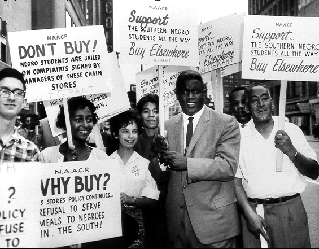
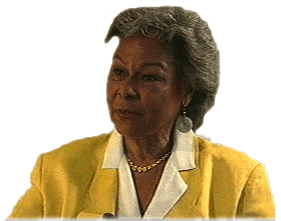
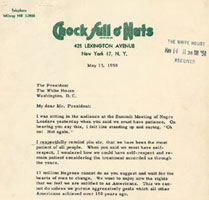
After baseball, Robinson got a job as vice president of a coffee shop chain called Chock Full O' Nuts. In 1957, Robinson joined the National Association for the Advancement of Colored People (NAACP) and became the chairman of the Freedom Fund drive that would later raise more than a million dollars. In a speech to NAACP members, he said, "Certainly if such revolutionary change can be brought about in baseball, it can also be brought about in education, in transportation, and any other area of our American life." In 1967, Robinson resigned from the national board of the NAACP because he thought the leader of one of the factions was being racist and ageist.
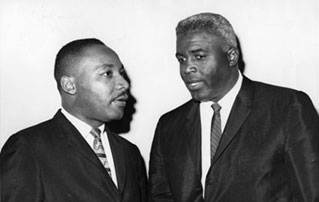
Robinson stood for his moral principles no matter what anyone said. He corresponded with many people, including Presidents Eisenhower, Kennedy, Johnson and Nixon to try to further civil rights issues. He participated in many marches and protests including the Youth March for Integrated Schools in Washington in 1958 and the March on Washington for Jobs and Freedom in 1963, where Dr. Martin Luther King, Jr. made his "I Have a Dream" speech.
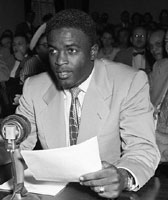
With Robinson's help, the Freedom National Bank was created to help black business owners and other minority people to receive loans they normally wouldn't be able to acquire in a white run bank. Also, Robinson sent a telegram to President Johnson pleading with him to do something about the beatings by the Ku Klux Klan in Alabama. In 1969 he said "no" to an invitation to play in an Old-Timers game because white owners still hadn't hired any black managers or coaches. In 1972, Robinson was asked to throw out the first pitch in the World Series. He was honored but it didn't stop him from acknowledging there were still no black managers or coaches. Due to Robinson's persistence, a black manager was finally hired in 1975. Sadly this happened after Robinson passed away from a heart attack. He died on October 24, 1972 without seeing his dream come true.

